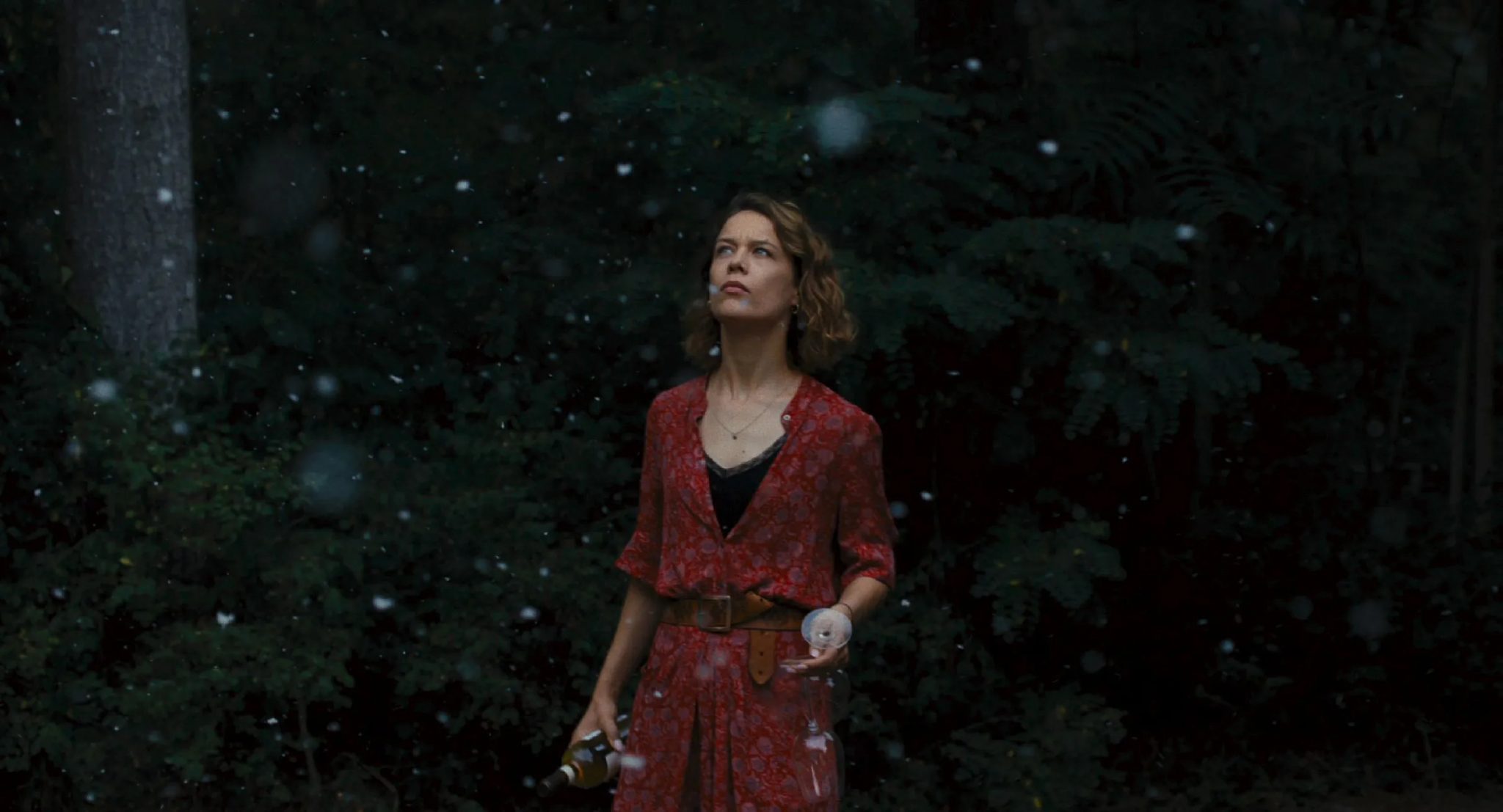Christian Petzold’s Afire joins a long lineage of summer films only to demonstrate how the climate crisis may forever alter them
‘Anything may be out of a window,’ wrote Virginia Woolf in her diary in 1929, ‘a ship – a desert – London.’ For the protagonist of German director Christian Petzold’s Afire (Rote Himmel, 2023), the world is framed by windows. Leon (Thomas Schubert), a twenty-something neurotic writer finishing his second novel, has left Berlin with his friend Felix (Langston Uibel), a budding photographer working on his art school portfolio, for a vacation house near the Baltic Sea where they hope to finish their respective projects. It is late summer. Wildfires are raging just 30 kilometres away. The two are joined in the house by Nadja (Paula Beer), the daughter of a family friend, and Nadja’s sometime lover, a lifeguard called Devid (Enno Trebs). ‘Are you spying on her?’ Felix asks Leon as he watches Nadja through a window. One night, Leon wakes up and pulls back the curtain to find the others playing badminton in the backyard with LED-lighted rackets.
The window is the voyeur’s archetypal perch. It is equally where the artist cultivates a stance of distanced observation. Chekhov’s short story ‘The House with the Mezzanine’ (1896), which inspired Petzold’s film, centres around a landscape painter who recounts a previous summer when he stayed at a friend’s house for a holiday. ‘Condemned by destiny to perpetual idleness,’ the painter reports, ‘I did absolutely nothing. For hours together I gazed out of the window at the sky, at the birds, at the avenue, read everything that was brought me by post, slept.’ Their neighbour Lidia is a woman of action. She organises aid for villagers whose homes have burned down, rallies against local corruption and refuses to live the life of leisure that her family’s money would allow. In Afire, the characters also keep busy. Nadja (who Leon at first calls ‘the Russian’) is constantly on the move, riding her bicycle towards the city or the sea, working at an ice-cream stand, making dinner for the group, putting groceries away. Felix and Devid are equally busy, and bond when fixing the roof of the house together. Still, they allow summer’s rare infusion of pleasure to wash over them and the menial tasks they perform. At one moment, Felix is compelled to remind Leon – who constantly refers to his novel as a kind of inanimate overlord (‘my work won’t allow it’) – that, as forms of labour, such domestic activities are equally valid alongside artistic pursuits.
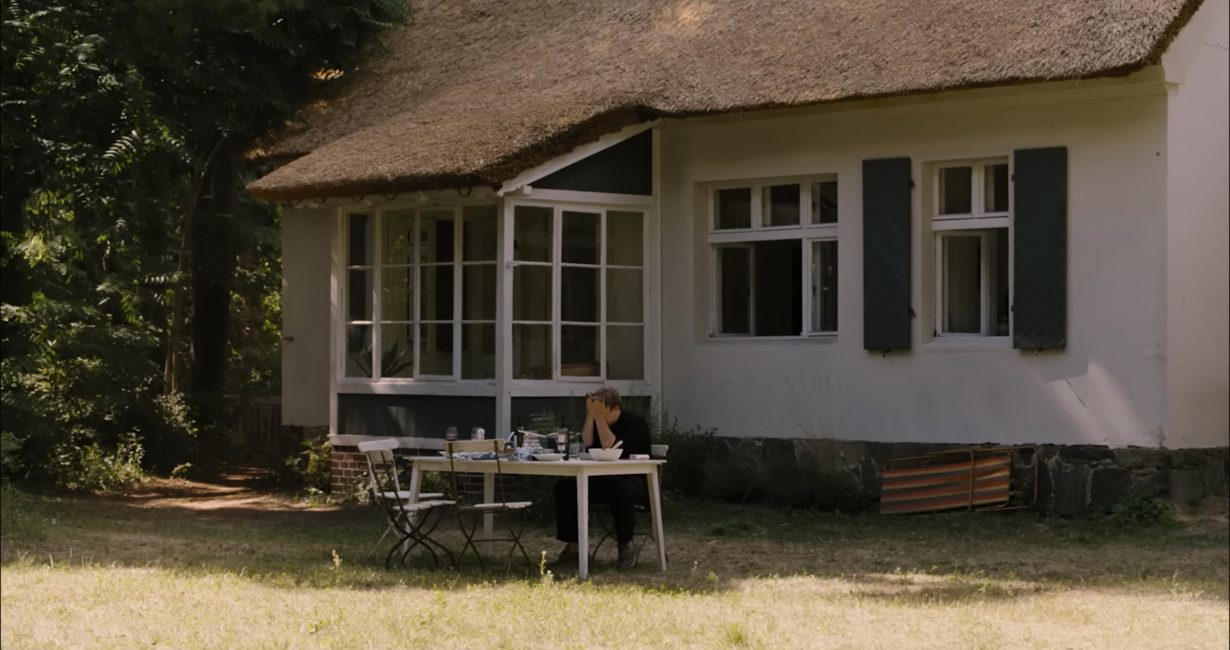
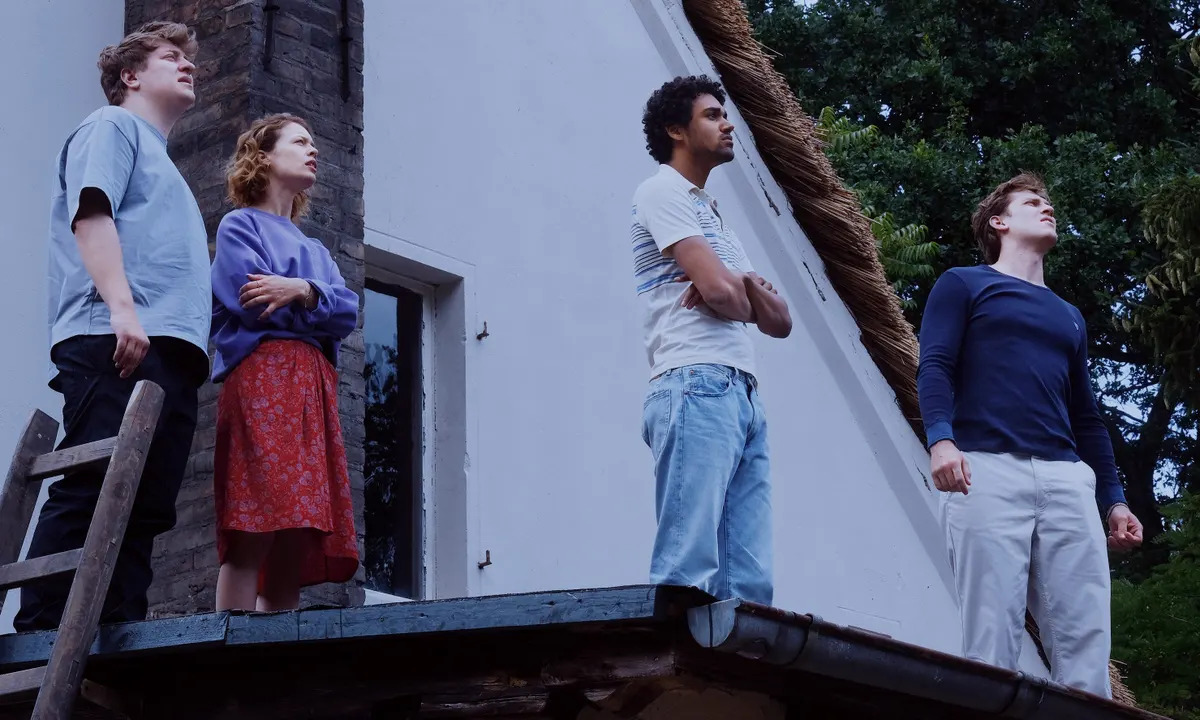
These oppositional typologies – of embodied action and detached observation, doers versus watchers – might be found in any number of artistic and scholarly groups. Often, the friction between them finds its most potent expression in the claustrophobic context of the holiday home, where choices about how to live each day – how to spend one’s time – are placed under a microscope. Perhaps for this reason, the summer film is a tried-and-tested vehicle for exploring how these conflicts rise to the surface. Much of Éric Rohmer’s work (which Petzold claims inspired Afire) is built around constellations of wayward art students, musicians or painters who, during the summertime, reconcile artistic and personal difficulty through intimate contact. In A Summer’s Tale (1996), for example, isolated musician Gaspard is susceptible to Leon-like indulgent despair – ‘I see everyone but they don’t see me!’ he bemoans. He is only able to somewhat surmount his creative, romantic and social blocks with the help of adventure-oriented Margot, who works a summer service job having recently completed a PhD. Forgoing and unlearning our own resistances and tendencies is, these films partially suggest, a necessary part of artistic development.
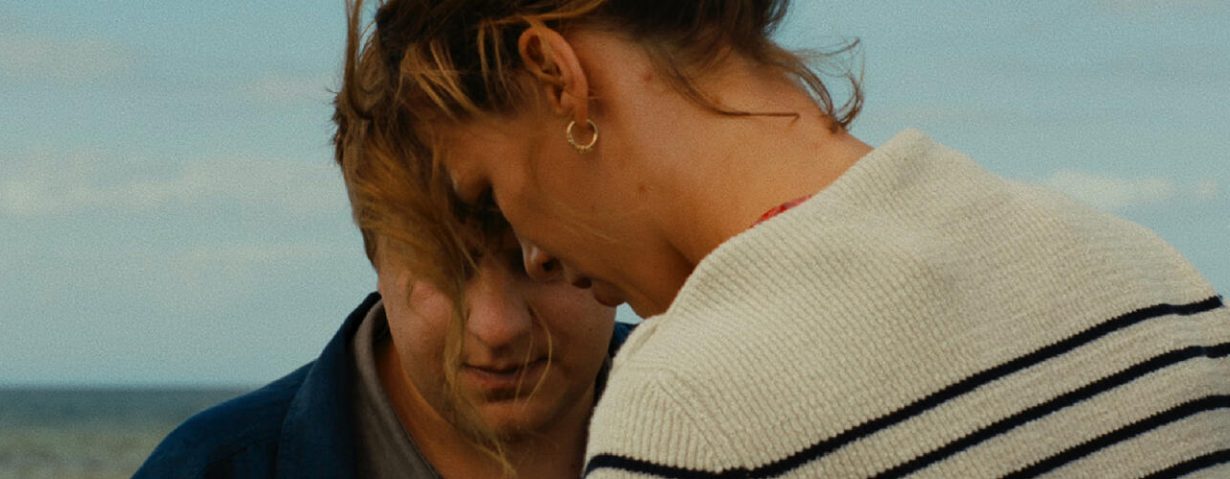
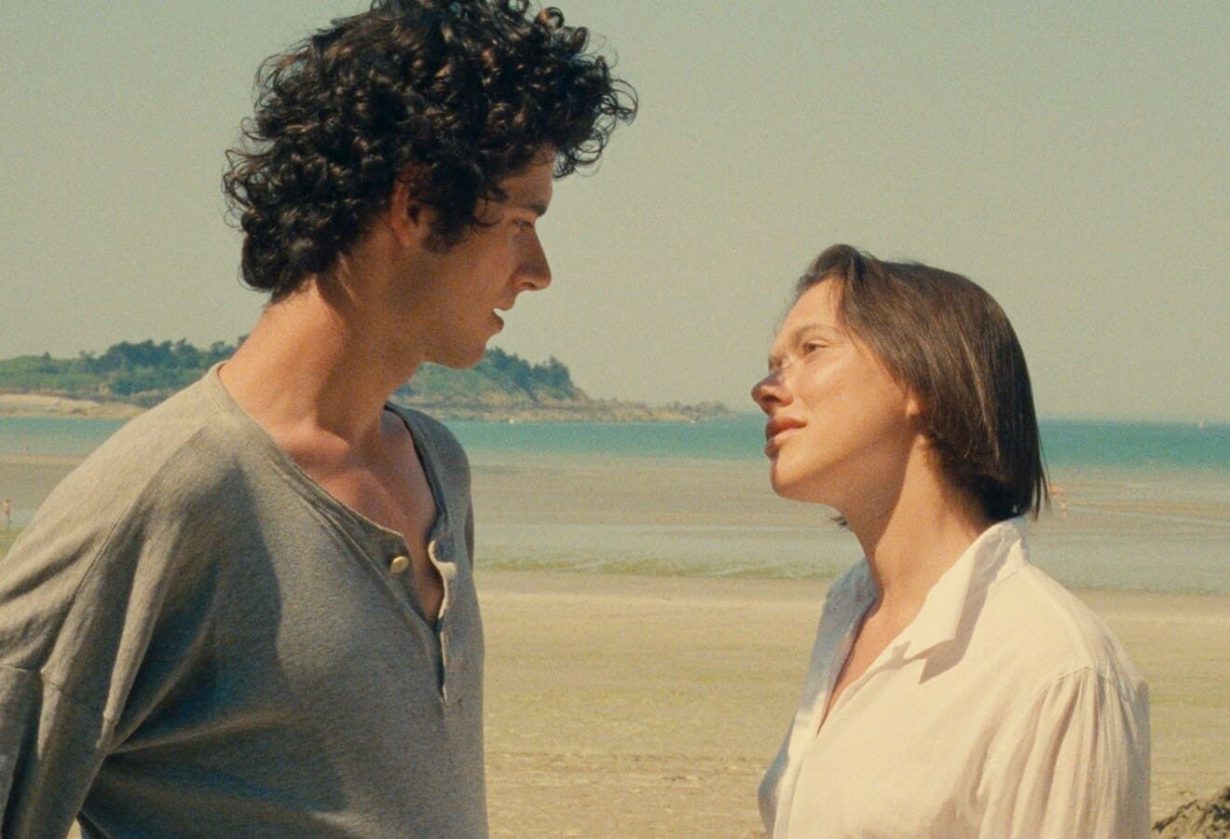
The tension between doers and watchers can also be split across a gendered divide in artmaking couples. In Mia Hansen Løve’s Bergman Island (2021), or in Kathleen Collins’s Losing Ground (1982), couples decamp to summer vacation spots to carry out artistic projects. The female halves of these couples struggle with the seemingly effortless abilities of their counterparts. In Bergman Island, Chris (Vicky Krieps) torments over writing a screenplay (‘blood from a stone’, she calls it) while her husband writes continuously in his notebooks. In Losing Ground, a philosophy professor writing about ecstatic experiences is frustrated by her incapacity to have them. (Her husband is a successful, expressive abstract painter.) The system of summer and leisure – its insistence on experiences of embodiment (water, sweat, sex) – is partially what provides them with the tools to overcome various barriers to artistic production: they drop into the sensuous experience that leads them to finally write or create on their own terms.
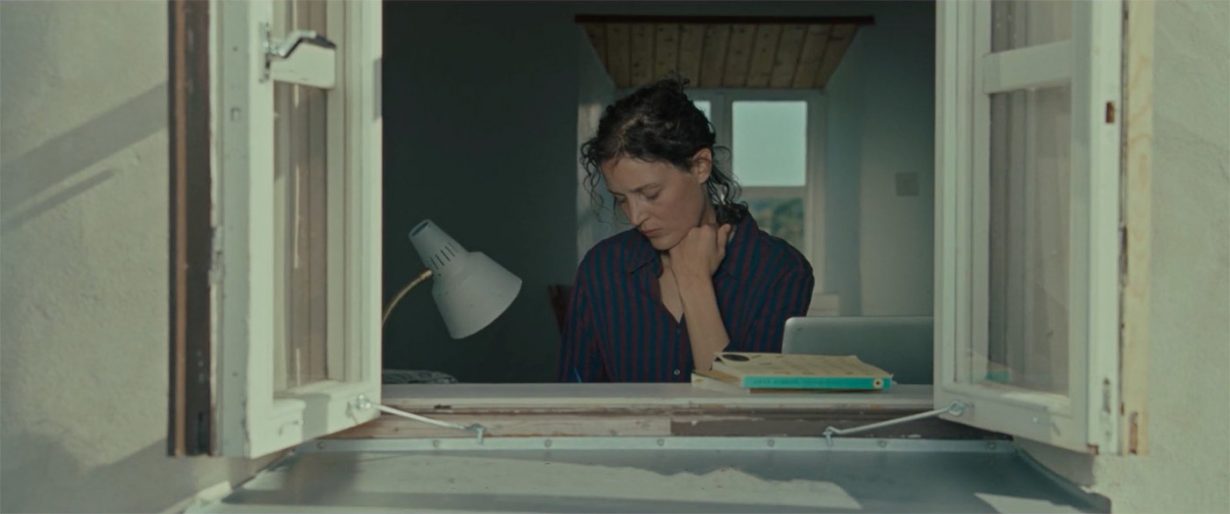
In Afire, Leon’s process is more forestalled. While he stares dully at his laptop screen, Felix’s portfolio project coalesces, built out of his open reception of summer’s rhythms and his friendship with Devid. Felix has begun to produce a series of portraits of strangers he has met on the beach looking out at the sea, shot both from the back and the front. Rückenfiguren – the figures in nineteenth-century paintings depicted from behind as they gaze out at nature (as perhaps most famously in Caspar David Friedrich’s 1818 The Wanderer above the Sea of Fog) – have an encounter with nature that spurs the subject to reconcile inner autonomy with sensuous existence. Yet the portrait’s viewer is held at a distance from this reconciliation, lending a feeling of melancholic detachment from the figure’s inner thoughts and feelings. It is an experience of looking that recalls Leon’s own. To underscore the point, Petzold provides us with a scene where, after many resisted invitations to the sea, Leon finally makes it to the beach: fully clothed, immersed in a book and never entering the water despite Felix’s urgings. Instead, he watches.
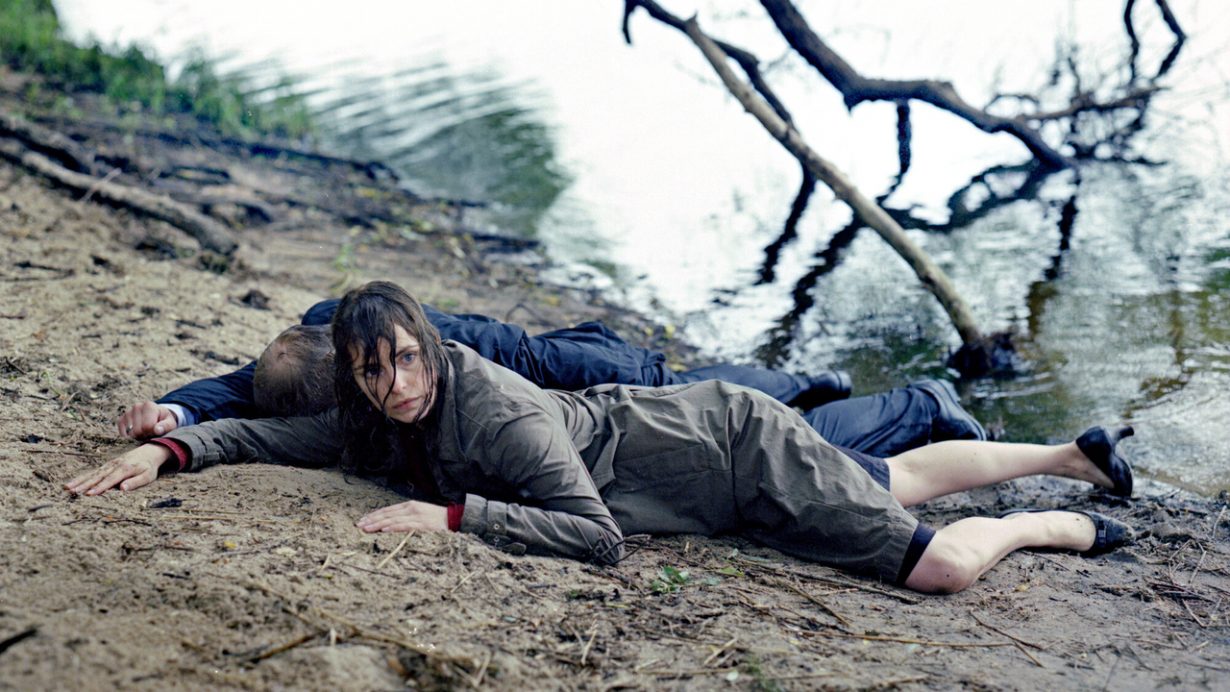
Leon’s avoidance of submersion, his pathological dryness, puts him at odds with the protagonists of Petzold’s previous films which frequently feature water, whether in rivers or the sea, as central motifs. In Yella (2007), the husband of the titular character, played by Nina Hoss, drives the two of them into a river in the first twenty minutes, initiating a kind of purgatorial journey. In Barbara (2012), (again) Hoss’s character has to create a water-tight package for money to escape East Germany to Denmark, across the same Baltic Sea pictured in Felix’s photographs. By contrast, in Afire it is not water that provides the axis of action but the forest fires that inch closer throughout the film. Petzold’s films tend to layer myth and reality, or past and present, and then hide the seams; plots are laid atop one another in such a way that the film’s basic coordinates (the where and/or when) become somehow perfunctory (a method perfected in Transit, 2018). Afire is something of an inversion. It unfolds more definitively, linearly – mirroring the ascendant Y-axis of the climate crisis’s ever-climbing temperatures. This most extreme exposure to the force of nature is what permits Leon to, finally, begin to write from a more honest place. The triumphant arc of summer film, in which the artist overcomes personal pathology and relearns how to create, is thereby maintained – but at the immense and tragic cost of a fire which consumes all in its path, leaving Leon nearly the last person alive as his friends succumb to death and illness.
This tonal unevenness has frustrated some of Afire’s viewers. I wondered too, if Leon’s successful completion of a novel could only rise from disaster’s ashes, if creation is won only through loss. I thought of fellow Berlin School director Angela Schanelec’s work, in which summer is a time of distinct drag and irresolution. In Afternoon (2007), Passing Time (2001) and I Stayed in Berlin All Summer (1994), struggling artists bump around one another, stew in the mire – and are none the better for it. Schanelec suggests that there is nothing necessarily special about summer, aside from the way it focuses us on time spent and time wasted. Still, there is truth in Petzold’s turn to melodrama. The implication, possibly, is that the existential climate risks we face during summer equally risk our ability to be with, and learn from, one another. This July and August, travel has been disrupted across Italy and Greece due to vicious forest fires. It is simply too hot, in many places, to even go outside at all. So if the summer film depicts a protected time and place for artistic growth, creation, contact with others, Petzold asks how the climate catastrophe might jeopardise this respite from daily life. Summer’s synonymy with carefree leisure finally becomes the farce it, perhaps, always was.
